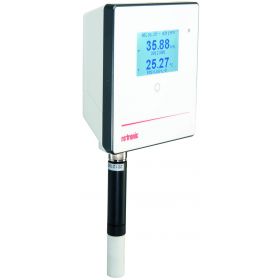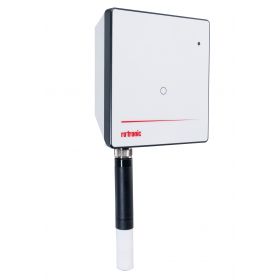
Medical Device Production
Medical devices are one of the products regulated by the FDA. The US Food & Drug Administration (FDA) is an agency within the Department of Health and Human Services, a government agency that establishes and publishes regulations that govern the sale of various products to protect and promote public health.
The FDA requires that manufacturers establish and maintain quality systems to ensure that their products meet the usability and safety needs of their customers. Quality systems for products that are governed by the FDA are based on Good Manufacturing Practices or GMP’s. The GMP compliance requirements for medical devices are outlined in the Code of Federal Regulations (CFR):
- 21 CFR Part 808
- 21 CFR Part 812
- 21 CFR Part 820, this is the main interest in terms of environmental monitoring
The PST product range can help comply to the FDA 21 CFR Part 820 Quality System Regulation, Subparts G and M.
Subpart G – Production and Process ControlsThe Rotronic Monitoring System (RMS) is a real time environmental monitoring system designed for GxP applications that can help monitor critical process parameters and other parameters to ensure product quality. The PST teams worldwide can offer support in terms of service, calibration, for control and monitoring equipment, and calibration procedures as well as system validation based upon the GAMP®5 recommendations.
Subpart M – RecordsRMS is a FDA 21 CFR Part 11 conform software solution that offers full data integrity for record purposes. As the environmental monitoring is part of the device history and quality system it is crucial that these records are maintained during a minimum of 2 years from the date of release for commercial distribution by the manufacturer.
The ISO 13485 Quality Management for medical devices is an internationally agreed standard that sets out the requirements for a quality management system specific to the medical devices industry and aligns with the FDA 21 CFR Part 820.
However, an ISO is only a guideline and not a regulation and as of such is not mandatory but does offer various benefits such as demonstrating compliance with regulatory and legal requirements and ensuring the establishment of QMS practices that consistently yield safe and effective medical devices. RMS helps fulfil the following ISO 13485 requirements:
- 6.3 Infrastructure
- 6.4 Work Environment and Contamination Control
- 7.5.1 Control of Production and Service Provision
- 7.5.6 Validation of Processes for Production and Service Provision
PST can also offer monitoring solutions to comply to the ISO 14644 standards for cleanrooms and associated controlled environments.
Recommended Products
-
PCD-S - RMS Differential Pressure Probe
The compact differential pressure probe with flow or diaphragm sensor technology Learn More -
RMS-HCD-S - Humidity and Temperature Probe
The HCD-S is a completely digital probe designed for the Rotronic Monitoring System RMS. It measures humidity and temperature and calculates the dew/frost point.
Learn More -
RMS-LOG-L-D – Data logger with display
The RMS-LOG-L-D stores up to 44,000 pairs of measured values from the interchangeable CO2, differential pressure, humidity, temperature or low dew point probe, and transmits them to the RMS database via LAN link. Learn More -
RMS-LOG-L - Data Logger - LAN Interface
The flexible dataprotection component of the Rotronic Monitoring System RMS Learn More -
RMS-LOG-915 - Data Logger - Wireless Interface - 915 MHz
The flexible dataprotection component of the Rotronic Monitoring System RMS Learn More -
RMS-LOG-868 - Data Logger - Wireless Interface - 868 MHz
The flexible dataprotection component of the Rotronic Monitoring System RMS Learn More











